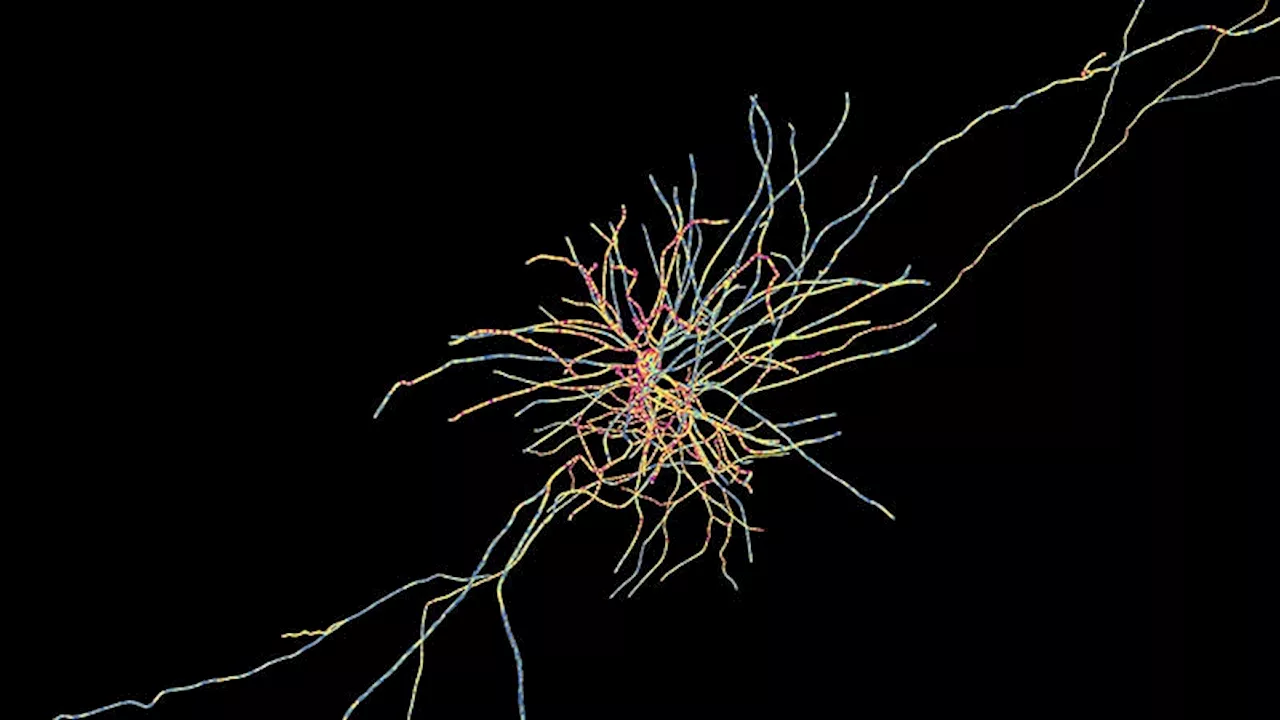Researchers have discovered that the hippocampus, traditionally known for its role in memory, plays a crucial role in regulating food intake and weight. Studies in mice reveal distinct populations of neurons in the hippocampus that respond specifically to fat and sugar, influencing food preferences, motivation, and memory. These findings open up new avenues for understanding and potentially treating eating disorders and obesity.
The hippocampus, a brain region renowned for its role in memory, has emerged as a crucial player in regulating food intake, according to new research. This study, conducted by Guillaume de Lartigue and his colleagues at the Monell Chemical Senses Center in Philadelphia, identified distinct populations of neurons in the mouse hippocampus that respond specifically to either fats or sugars.
Fat-responsive neurons increased the preference and motivation for fat consumption, while sugar-responsive neurons encoded spatial memory for sugar location. Stimulating these neurons led to increased food intake, while silencing them impaired the mice's ability to recall sugar-related memories, consequently reducing sugar consumption and preventing weight gain even on high-calorie diets. Reactivating these neurons enhanced food memory, leading to increased consumption. This highlights the powerful influence of food memories on dietary behavior. While these findings are promising, the researchers acknowledge that direct evidence linking gut nutrient signals to specific hippocampal circuits in humans is still lacking. The development of tools for real-time monitoring of gut-brain interactions, coupled with advanced neuroimaging and transcriptomic studies, is essential to bridge this gap. The researchers are optimistic that human studies validating these circuits and their contributions to eating behavior can be conducted within the next 5-10 years. This breakthrough research suggests that manipulating these hippocampal neurons could lead to novel treatments for eating disorders and obesity-related conditions. Neuromodulation techniques, such as vagal nerve stimulation, could potentially activate these feeding-related neurons, while targeted pharmacological interventions could modulate their activity. Dietary interventions, involving controlled exposure to specific nutrients, could also reshape food preferences and reduce the impact of food cues on behavior
HIPPOCAMPUS FOOD INTAKE WEIGHT CONTROL NEURONS MEMORY EATING DISORDERS OBESITY
United States Latest News, United States Headlines
Similar News:You can also read news stories similar to this one that we have collected from other news sources.
 Key players in brain aging: New research identifies age-related damage on a cellular levelScientists have identified the molecular changes that occur in the brains of aging mice and located a hot spot where much of that damage is centralized. The cells in the area are also connected with metabolism, suggesting a connection between diet and brain health.
Key players in brain aging: New research identifies age-related damage on a cellular levelScientists have identified the molecular changes that occur in the brains of aging mice and located a hot spot where much of that damage is centralized. The cells in the area are also connected with metabolism, suggesting a connection between diet and brain health.
Read more »
 Scientists Identify Brain Cells Key to Aging ProcessA new study suggests that specific brain cells, particularly those in the hypothalamus, undergo significant changes as we age, potentially influencing the aging process itself.
Scientists Identify Brain Cells Key to Aging ProcessA new study suggests that specific brain cells, particularly those in the hypothalamus, undergo significant changes as we age, potentially influencing the aging process itself.
Read more »
 Brain Aging: Hypothalamus Identified as Key PlayerA new study reveals that the hypothalamus, specifically the area around the third ventricle, plays a crucial role in brain aging. Researchers discovered that certain cells in this region undergo significant changes with age, leading to reduced neuronal function and increased immune activity.
Brain Aging: Hypothalamus Identified as Key PlayerA new study reveals that the hypothalamus, specifically the area around the third ventricle, plays a crucial role in brain aging. Researchers discovered that certain cells in this region undergo significant changes with age, leading to reduced neuronal function and increased immune activity.
Read more »
 Tumor-secreted protein may hold the key to better treatments for deadly brain tumorMedical researchers have announced the results of an innovative treatment approach that may offer improvement in overall survival in older patients with newly diagnosed glioblastoma while maintaining quality of life. The research focused on a tumor-secreted protein identified as a potential target for therapeutic intervention.
Tumor-secreted protein may hold the key to better treatments for deadly brain tumorMedical researchers have announced the results of an innovative treatment approach that may offer improvement in overall survival in older patients with newly diagnosed glioblastoma while maintaining quality of life. The research focused on a tumor-secreted protein identified as a potential target for therapeutic intervention.
Read more »
 Fighting experience plays key role in brain chemical's control of male aggressionLike humans, mice will compete over territory and mates, and show increased confidence in their fighting skills the more they win. At first, a brain chemical called dopamine is essential for young males to master this behavior. But as they gain experience, the chemical grows less important in promoting aggression, a new study shows.
Fighting experience plays key role in brain chemical's control of male aggressionLike humans, mice will compete over territory and mates, and show increased confidence in their fighting skills the more they win. At first, a brain chemical called dopamine is essential for young males to master this behavior. But as they gain experience, the chemical grows less important in promoting aggression, a new study shows.
Read more »
 This Health Factor Increases Dementia Risk By Almost 30%, Study ShowsSocial connection is key to brain longevity.
This Health Factor Increases Dementia Risk By Almost 30%, Study ShowsSocial connection is key to brain longevity.
Read more »
